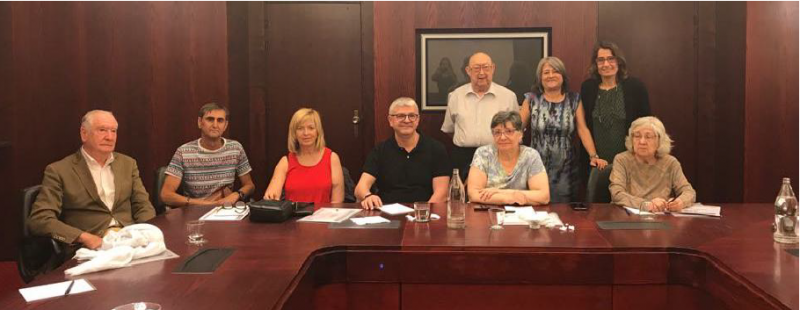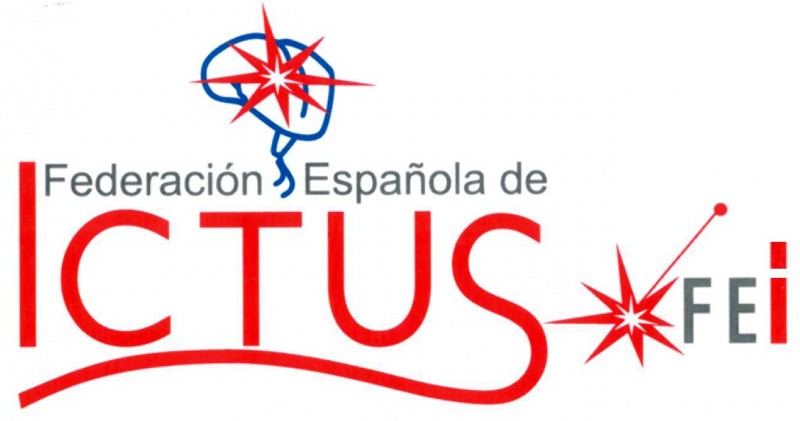“Our system promotes health, prevents disease and provides assistance to serious patients in an exemplary manner, trains its professionals properly and generates a high added value in biomedical research, but it still has one remaining issue: to rehabilitate, take care of both the patient and the caregiver and properly reinsert citizens back into society” says Carmen Aleix, the President of the Spanish Federation of Stroke (FEI).
SAFE: What is one issue related to the life after stroke in your country that you think needs special attention?

Carmen Aleix
CA: Rehabilitation in patients with stroke occupies a very irrelevant role in most health decision-making forums throughout Spain, including Catalonia.
We know what our patients think about how the service is provided “beyond the acute phase” They notice limitations regarding care access related to age and perceive that there are no homogeneous referral criteria when accessing to certain social benefits. They also sense lack of information and greater difficulties regarding access to attention when there is cognitive damage associated with severe behavioral disorders. Patients also report important differences in the quality of the benefit depending on the center to which the patient is referred. Rehabilitation should be the main actor and not the secondary or even the absent one, as has been up to now in any plan or strategy on stroke or any other disease that produces disability. Patients demand to live with dignity.
SAFE: What would be the solution, i.e. what is your organisation’s position regarding this issue?
CA: The Spanish Stroke Federation defends the need to carry out in-depth reforms of the system to ensure its sustainability. Encourage patient self-care, health promotion, adjustment of resources to needs and continuity in care.
Our current health model needs to adapt to the new social reality marked by population aging which has become chronic, and the continuous development of technological services. For this, it considers that the person must be placed in the center of our National Health System (SNS), in order to achieve that the needs of the patient to be the ones that vertebrate all the infrastructures and sanitary and sociosanitary services, and demanding a much more active participation in the design and execution of the services that are provided, which is already happening in the most advanced countries in terms of health. Ideally, we should be able to count on a NATIONAL NETWORK OF CONTINUED CARE and to know clearly how the rehabilitation expense is managed in the Social Security and why now is there so much deficiency, so few sessions and so terrible attention in the rehabilitation of stroke patients.
SAFE: Please tell us more about your organisation.
CA: The Spanish Federation of Stroke (FEI) is a non-profit organization at the national level, independent of the administrations, of volunteering, which was founded in 2006. The lack of interest and the scarce sensitization of the health administrations towards stroke was a sufficient reason for the constitution of the federation. The mission of the FEI is to promote information and education on stroke, prevention and adequate and equitable treatment throughout the national territory. Its values are Participation, Commitment, Responsibility, Social Change.

2018 Assembly of the Federation with its associations
Commitment for 2019
1. The FEI is participating in the prevention campaign #GeneraciónInvictus.
2. It is also conducting online surveys to participate patients and caregivers.
3. We have signed a collaboration agreement with the Spanish Society of General and Family Physicians, through which an epidemiological study on the knowledge of stroke in primary care will be carried out jointly, as well as the organization of other workshops and joint activities.
A picture is worth a thousand words, to know our activities we leave our WEBs and Social Networks.
https://ictusfederacion.es/
https://www.facebook.com/ictusfederacion/
https://twitter.com/ictusfederacion
http://diamundialdelictus.org/unictusunahistoria.com/
.





